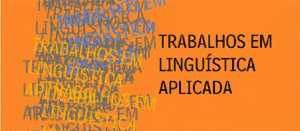Luiz Paulo da Moita Lopes, full Professor, Universidade Federal do Rio de Janeiro, Rio de Janeiro, RJ, Brazil.
Joana Plaza Pinto, full Professor, Universidade Federal de Goiás, Goiânia, GO, Brazil.
 Based on the conception that democracy is constitutively unstable, the article “Colocando em perspectiva as práticas discursivas de resistência em nossas democracias contemporâneas: uma introdução” focuses on studies of discursive practices situated in some parts of the world (South Africa, Brazil, England, Italy, Israel, Greece, and Poland), that have built resistance to ongoing movements of weakening democracy. These movements have been characterized by the spread of discursive ideologies of the extreme right or radical right, although in different ways and to different degrees. These ideas coexist in a neoliberal world of fiscal austerity and the uberization of most populations while the few get much richer. The return of right-wing forces at the beginning of the 21st century in the election of governments, the strengthening of parties, and the creation of political action groups has been striking to the point that Santos (2016) refers to these forces as an expression of social fascism – to differentiate from historical fascism – even though it is the result of ‘democratic’ elections.
Based on the conception that democracy is constitutively unstable, the article “Colocando em perspectiva as práticas discursivas de resistência em nossas democracias contemporâneas: uma introdução” focuses on studies of discursive practices situated in some parts of the world (South Africa, Brazil, England, Italy, Israel, Greece, and Poland), that have built resistance to ongoing movements of weakening democracy. These movements have been characterized by the spread of discursive ideologies of the extreme right or radical right, although in different ways and to different degrees. These ideas coexist in a neoliberal world of fiscal austerity and the uberization of most populations while the few get much richer. The return of right-wing forces at the beginning of the 21st century in the election of governments, the strengthening of parties, and the creation of political action groups has been striking to the point that Santos (2016) refers to these forces as an expression of social fascism – to differentiate from historical fascism – even though it is the result of ‘democratic’ elections.
The discourses of the extreme right have presented themselves with great destructive vigor to the political and ethical gains of feminist, LGBTI+, anti-racist, immigrant, indigenous, Roma, quilombola, etc. movements constituted since the mid-twentieth century. These discourses of the radical right brought back into focus what we can call a persistent colonial modernity (Mbembe, 2013/2014). This insistence manifests itself in the exemplary use of social media, so that we understand the Internet as the ‘home of the radical right’. It is impossible to study such right-wing movements without considering the action of groups from ‘a world of anything goes’, emulated by heads of governments and their supporters, in the use of digital platforms through anonymized memes, trolls, fake-news, and pranks. These are exhaustively employed to cause astonishment, disruption of senses, outrage, and moral panic, operating also in the destruction of reputations and lives while creating ‘smoke clouds’ that blur attention from what really matters. What this article highlights, therefore, is the role of language in action in the performatization of meanings of resistance to a world that institutes what we call the ‘Perfect Horror’, the junction between Economic Horror and Sociopolitical Horror.

Image: Marília Castelli.
It is against this backdrop that we understand with Foucault (1976/1988), Butler, Gambetti and Sabsay (2016), and Hardt and Negri (2018/2017) that the action of power is preceded by resistance or that vulnerability is in the fabric that manufactures resistance. There is no place for intrinsic subjection or inferiorization from which one cannot escape. Ontologies are fabrications that, while they may hold in political struggle, dissolve in discursive practices in the here and now. Therefore, this article offers a broad panorama of the special issue “Resistance in Discursive Practices of Contestation in Fragile Democracies”, co-organized by Luiz Paulo Moita-Lopes (UFRJ/CNPq) and Joana Plaza Pinto (UFG/CNPq). The studies in the volume discuss discursive practices of resistance in countries affected by the strengthening of anti-democratic and/or far-right discourses or the persistence of unequal and violent colonial processes and discourses, including Brazil, which experiences both far-right discourses and the persistence of structures of colonial violence. Participants in the practices analyzed in the articles resist the persistent projects of colonial modernity, such as black and quilombola populations, LGBTI+, women, diverse peripheral subjects, historically on the margins of the promises of Modernity, as well as populations subjected to more recent migratory processes. Certainly, it stands out in the set of these articles the recognition of racism as a central system in the structures of inequality that pervasively spread in the world from the 15th century on (BERNARDINO-COSTA et al, 2019), and that now act in the construction of what we previously called ‘Perfect Horror’. In these contexts, resistance is conceived as a political action performed with diverse semiotic resources, including the body, and as counter discourses in the face of exclusionary and violent hegemonic discourses, both in direct responses to these discourses and, indirectly, producing new discursive regimes for new political projects.
References
BERNARDINO-COSTA, J. et al. Introdução: Decolonialidade e pensamento afrodiaspórico. In: Decolonialidade e pensamento afrodiaspórico. (ed.) Belo Horizonte: Autêntica Editora, 2019.
BUTLER, J., GAMBETTI, Z. and SABSAY, L. Vulnerability in resistance. Durham: Durham University Press, 2016.
FOUCAULT, M. História da sexualidade. Rio de Janeiro: Paz &Terra, 1976.
HARDT, M. and NEGRI, A. Assembly. A organização multitudinária do comum. São Paulo: Editora Poloteia, 2018.
MBEMBE, A. Crítica da razão negra. Lisboa: Antígona, Lisboa, 2014.
SANTOS, B. S. A difícil reinvenção da democracia frente ao fascismo social. Entrevista com Roberto Machado [online]. Instituto Humanitas Unisinos, 2016 [viewed 11 June 2021]. Available from: http://www.ihu.unisinos.br/159-noticias/entrevistas/563035-a-dificil-reinvencao-da-democracia-frente-ao-fascismo-social-entrevista-especial-com-boaventura-de-sousa-santos
To read the article, acess
MOITA-LOPES, L. P. and PINTO, J. P. COLOCANDO EM PERSPECTIVA AS PRÁTICAS DISCURSIVAS DE RESISTÊNCIA EM NOSSAS DEMOCRACIAS CONTEMPORÂNEAS: UMA INTRODUÇÃO. Trabalhos em Linguística Aplicada [online]. 2020, vol. 59, no.03, pp. 1590-1612 [viewed 14 June 2021]. https://doi.org/10.1590/010318139154811120210123. Available from: http://ref.scielo.org/9zgpqk
External links
Trabalhos em Linguística Aplicada – TLA: www.scielo.br/tla
Como citar este post [ISO 690/2010]:


















Recent Comments